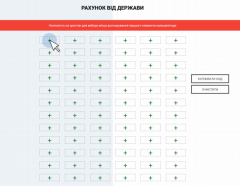Public Control of State Finances: “Participatory budgeting” in Ukraine
Embezzlement has long been the norm in Ukraine. It seems that any effort to curb the country’s chronic corruption is simply met with a higher bribe, thus driving the country further into a seemingly unbreakable cycle. Indeed, even the traditional rotation of figureheads in the cabinet is virtually meaningless in terms of fighting the fundamental structure of corruption in the Ukrainian state – while people change, the structure remains. Hence, how can a nation fight against this chronic illness in such an environment?
Brazil, one of the world’s most rapidly-developing economies, seems to have found a practical solution to the problem of corruption in budgetary processes. The Latin American country introduced the idea of societal monitoring of the government budget, and has in turn seen a dramatic increase in not only good governance practices, but also in the general standard of living of its citizens. The city of Porto Alegre in particular, the first to adopt the idea of “participatory budgeting”, is perhaps ideal proof of this phenomenon, as the standard of living of its residents has skyrocketed within just a few years to the highest in the entire Brazilian state. For more information regarding “participatory budgeting”, please see CASE Ukraine’s «Public Control of State Finances: “Participatory budgeting” in Ukraine».
